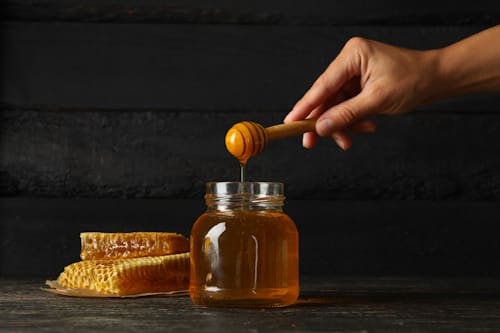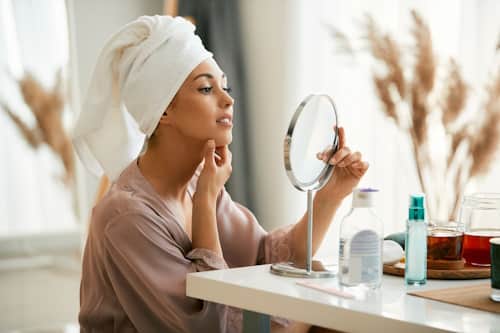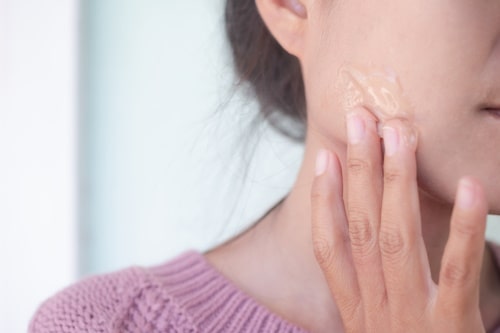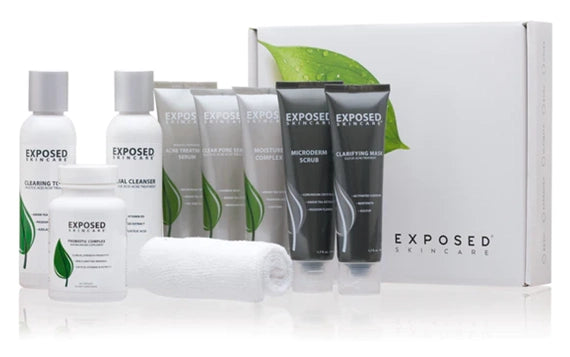Honey has been lauded for its many health benefits for centuries. From ancient remedies to modern-day skincare routines, honey has found its way into our lives in countless ways. When it comes to skin health, people ask: Does honey cause acne?
If you've been wondering about the effects of honey on your skin, especially its role in acne, this comprehensive guide will shed light on all your queries. Continue reading to know whether or not honey should be part of your skin regimen.
Also read: How to choose the best acne treatment
Biggest Take-Aways:
- Honey, especially raw and manuka varieties, offers multiple benefits for the skin, including antibacterial and anti-inflammatory properties, but its effect can vary based on individual skin types.
- Diet plays a significant role in skin health, with foods affecting insulin levels and androgen hormone activity, which can influence acne production.
- While natural remedies like honey have been used historically for skin benefits, modern synthetic treatments can sometimes offer more targeted solutions for specific acne types.
- Exposed Skin Care provides a holistic and science-backed approach to acne management, ensuring both treatment and prevention for clearer skin.

The Basics of Acne
Acne is a common skin condition that arises when hair follicles are clogged with dead skin cells and oil from the skin. It can lead to pimples, blackheads, whiteheads, and other skin blemishes. Many factors can trigger or worsen acne, from hormonal fluctuations to diet.
Factors That Cause Acne
- Dietary Choices: Certain foods are often linked to acne breakouts. For instance, the debate about eating chocolate and acne flare-ups has been long-standing. While no conclusive evidence points to chocolate, there's a consensus that high glycemic foods may play a role.
- Sebum Production: Excess sebum production can lead to clogged pores, which can cause acne.
- Bacteria on Your Skin: Acne-causing bacteria can exacerbate the condition, leading to inflammation and redness.
There are countless myths surrounding acne, from "dirty skin causes breakouts" to the effects of certain foods on your skin's health. Among these is the curiosity about honey's role in acne, especially with the growing trend of using "yogurt for acne" and similar natural remedies.
Honey and Acne: Unpacking the Facts
Honey, especially raw honey and manuka honey, has long been used for its therapeutic properties. Its benefits for the skin are numerous:
- Antioxidant Richness: Honey is a rich source of antioxidants that can prevent cellular damage from free radicals.
- Anti-inflammatory Properties: Honey's anti-inflammatory properties can soothe the skin and reduce redness and swelling associated with acne.
- Antibacterial Nature: It possesses antibacterial qualities that can combat acne-causing bacteria on your skin, making honey good for treating breakouts.
- Moisturizing Ability: Honey can improve skin hydration, leaving it soft and supple.

Does Honey Alone Cause Acne?
While honey has many benefits, does honey alone lead to acne? The answer is nuanced. Honey itself doesn't inherently cause acne. However, it might not suit everyone like any other skincare product or ingredient. Those with sensitive or acne-prone skin might experience a breakout if honey isn't used correctly.
- Processed Honey vs. Raw Honey: Processed honey often contains added sugars, which could potentially contribute to acne. Raw honey or manuka honey for acne is generally more beneficial.
- Patch Test: It's wise to do a patch test before applying honey directly to your face, especially if you have acne-prone or sensitive skin. Apply a small amount of honey on a skin patch before applying it to larger areas.
- Combining Ingredients: When exploring remedies like "yogurt for acne" or honey-based face masks, consider other ingredients for acne, too. For instance, apple cider vinegar, while beneficial for some, might irritate others.
How to Use Honey for Acne Treatment
If you're keen on incorporating honey into your skincare routine, here are some ways you can use honey for acne:
- Honey Face Mask: Combine honey with ingredients like yogurt for acne. Apply the mixture to your skin, letting it sit for 20-30 minutes before washing off.
- Cleanser: Mix honey with your regular cleanser for added benefits. The antibacterial properties of honey can help ensure a deeper cleanse.
- Mix with Other Ingredients: Honey can be combined with other beneficial ingredients for acne, like oatmeal or tea tree oil.
- Direct Application: Cleanse your skin thoroughly. Then, apply honey directly to the affected areas. Let it sit for about 20 minutes before rinsing off.

Potential Risks and Precautions
It's essential to be cautious when introducing any new ingredient into your skincare routine.
- Avoiding Overuse: While honey has many benefits, it's essential to avoid applying honey too frequently. Overuse can lead to skin sensitivity or increased sebum production.
- Honey and Sugar: Honey is a form of sugar, and while it has many skincare benefits, remember that much sugar in your diet could potentially increase blood sugar levels, which might indirectly influence acne breakouts. It's crucial to differentiate between applying honey on your skin and ingesting it in significant amounts.
- Honey on Your Face: When using honey on your face, ensure it doesn't remain for extended periods. A general recommendation is to keep it on for about 20-30 minutes, then rinse thoroughly.
- The Purity of the Honey: As mentioned earlier, processed honey might contain additives or excessive sugars that aren't ideal for skin health. Always opt for pure, raw, or manuka honey for acne treatments to ensure the best results.
- Potential Allergic Reactions: While rare, some individuals might be allergic to components in honey. Always do a patch test before full application.
Honey vs. Other Natural Acne Solutions
Aloe Vera
Aloe Vera is renowned for its skin-soothing properties. It can help reduce inflammation and redness and promote a healthy skin barrier. Aloe, combined with honey, can boost the skin's healing process.

Yogurt for Acne
Recently, there's been a surge in using yogurt for acne. Yogurt contains probiotics, which can benefit skin health by balancing gut flora and potentially reducing inflammation. Lactic acid in yogurt also helps in exfoliating dead skin cells. Combined with honey, it can offer a potent solution for acne-prone skin.
Apple Cider Vinegar
Apple cider vinegar, with its acidic nature, can help balance the skin's pH. Its antimicrobial properties can also target bacteria on your skin, making it a popular choice for treating acne. However, diluting it before applying is crucial to prevent skin irritation.
Tea Tree Oil
Tea tree oil is known for its powerful antiseptic properties, which can effectively combat acne-causing bacteria. Like honey, it also has anti-inflammatory properties to soothe the skin and reduce redness.
Benefits of Using Exposed Skin Care for Acne Management
Finding the right acne treatment can be daunting. While honey has been used historically to aid skin health, modern skincare solutions like Exposed Skin Care offer a comprehensive approach to managing and preventing acne.
Let’s delve into the benefits of Exposed Skin Care:
- Prevent Acne: Formulated to target and prevent acne at its root, ensuring clear skin in the long run.
- Tackle Inflammation: Products infused with ingredients that combat inflammatory acne, reducing redness and swelling.
- Regulate Sebum Production: Expertly designed to regulate overactive sebum production, a leading cause of acne.
- Combat Cystic Acne: Effective against severe acne types, including cystic acne, which can often resist other treatments.
- Safety First: While foods that cause skin reactions and ingredients like benzoyl peroxide have their place, Exposed Skin Care ensures the health of your skin remains paramount.
- Evidenced-Based Approach: Evidence suggesting its efficacy makes it a great option for those seeking a science-backed acne solution.
- Holistic Skin Health: Beyond just treating pimples, the goal is to keep your skin radiant and healthy.
For those searching for an acne solution, keep reading to learn more about Exposed Skin Care. It’s tailored for people who’d do almost anything to get that flawless complexion. With a holistic approach, it addresses underlying factors like insulin levels, ensuring a comprehensive acne treatment.
Conclusion
The intricate relationship between honey and acne is multifaceted. While honey helps soothe the skin, its misapplication can paradoxically increase acne. Several factors, from dietary choices like milk and acne to the application methods, can either increase the risk of acne or aid in its treatment.
Honey also has a historical significance, having been applied to the skin for centuries for its therapeutic benefits. Using honey for the skin has proven to be good for acne for many, but like all treatments, individual reactions may vary.
Acne-prone individuals often find themselves navigating a labyrinth of treatments. From elimination diets to understanding triggers to topicals that heal existing pimples, the journey to clear skin is personal. The role of internal factors, such as insulin levels and androgen hormones becoming more active, further complicates the picture.
However, modern solutions like Exposed Skin Care emerge as holistic treatments amidst this complex landscape. They keep the skin radiant and address underlying causes, proving great for people seeking comprehensive care.
As research continues, and as we read on to find more connections and solutions, it's evident that the right balance of natural and scientific remedies may also reduce the challenges of managing acne.
FAQs
Does honey directly cause acne?
No, honey itself doesn't inherently cause acne. However, its effect can vary depending on the skin type and the kind of honey used.
Is raw honey better for acne treatment?
Yes, raw or manuka honey is generally more beneficial for acne treatments as they don't contain additives or excessive sugars.
What's the link between diet and acne?
Certain foods, especially those with a high glycemic index, can influence insulin levels and androgen hormone activity, potentially leading to increased acne.
Are natural remedies always better for treating acne?
Not always. While natural remedies like honey and yogurt have benefits, sometimes synthetic treatments might be more suitable for certain skin conditions.
How does Exposed Skin Care help in acne management?
Exposed Skin Care offers a comprehensive approach to managing and preventing acne by targeting its root causes, tackling inflammation, and ensuring overall skin health.



















